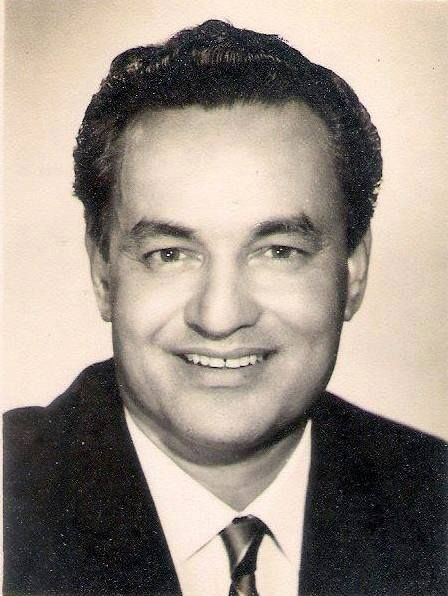Mukesh: 10 Incredible Facts About His Timeless Contribution to Indian Music and Society
Mukesh Chand Mathur, popularly known as Mukesh, is one of India’s most celebrated playback singers. His soulful voice and emotional delivery have made him an integral part of Bollywood’s golden era of music. With a career spanning decades, Mukesh’s contribution to the Indian music industry remains unmatched. In this article, we’ll explore his biography, the impact he’s had on daily life, important facts, FAQs, his significance to society, and more.
Mukesh Chand Mathur: Biography
Mukesh was born on July 22, 1923, in Delhi, India. His journey into music began in his early years, and he was inspired by the legendary singer, K.L. Saigal. Mukesh was initially trained under the guidance of his uncle and other local musicians, which laid the foundation for his future career. In the late 1940s, he moved to Bombay (now Mumbai) to pursue his dream of becoming a playback singer. His big break came when he sang “Dil Jalta Hai To” for the film Pehli Nazar (1945).
Mukesh’s deep, melancholic voice quickly became associated with some of the most iconic Bollywood stars, including Raj Kapoor, who considered Mukesh his favorite playback singer. Mukesh’s songs for films like Awaara, Shree 420, and Anari became immortal, and he was often the voice behind Raj Kapoor’s characters.
Mukesh Chand Mathur Daily Life and Impact
Mukesh’s songs are often played during moments of introspection, nostalgia, and reflection. His emotional voice, coupled with his ability to convey deep feelings of love, sorrow, and longing, made him a beloved figure in Indian households. His songs like “Awaara Hoon,” “Kabhi Kabhi Aditi,” and “Maine Tera Naam Liya” continue to resonate with listeners and evoke strong emotions.
Mukesh’s influence extended beyond the music industry. His songs became a source of comfort for those going through tough times, offering solace through their emotional depth. His contributions to the music industry are still celebrated, with his tracks frequently played at cultural events, retrospectives, and tribute concerts.
Significant Facts About Mukesh Chand Mathur
- Voice of Raj Kapoor: Mukesh was closely associated with the legendary actor-director Raj Kapoor. His voice became the essence of Raj Kapoor’s on-screen persona, especially in films like Awaara and Shree 420.
- Versatility in Singing: Mukesh’s voice was known for its depth and emotional resonance, which made him the go-to singer for sad and melancholic songs. He was also versatile enough to sing peppy and joyful tracks, making him one of the most versatile singers of his time.
- Award-Winning Talent: Mukesh’s contributions were recognized with several accolades. He won the Filmfare Award for Best Male Playback Singer for his song “Kabhi Kabhi Aditi” in 1976, which is considered one of his most iconic songs.
- International Recognition: Mukesh’s songs became popular beyond Indian borders. His timeless melodies were appreciated by music lovers in countries such as Pakistan and the Middle East.
- Legacy in Ghazals: Mukesh’s renditions of ghazals are iconic, and he was widely regarded as one of the foremost interpreters of the genre in Bollywood. His emotive voice brought out the depth and sadness of ghazals beautifully.
FAQs About Mukesh Chand Mathur
Q: What is Mukesh’s most famous song?
A: Mukesh’s most famous song is arguably “Awaara Hoon” from the movie Awaara (1951), though “Kabhi Kabhi Aditi” and “Maine Tera Naam Liya” are also iconic tracks.
Q: How many songs did Mukesh sing in his career?
A: Mukesh recorded over 1,000 songs in his career, and his music continues to be beloved by audiences worldwide.
Q: Did Mukesh work with prominent music composers?
A: Yes, Mukesh collaborated with some of the most renowned music composers of his time, including Shankar Jaikishan, S.D. Burman, and Ravi, contributing to the timeless quality of his music.
Q: What made Mukesh’s voice so special?
A: Mukesh’s voice was known for its raw emotion, which allowed him to connect with listeners on a deeply emotional level. His ability to convey feelings of love, longing, and sorrow made him a favorite among music lovers.
The Significance of Mukesh Chand Mathur
Mukesh’s significance extends far beyond his role as a playback singer. His songs have become a symbol of love, sorrow, and nostalgia, often reflecting the emotional landscapes of Bollywood films. His unique ability to capture the nuances of the human experience made him a cherished figure in the hearts of millions.
His association with Raj Kapoor helped define the golden era of Bollywood music. Mukesh’s voice was integral to the success of many of Raj Kapoor’s films, and together they created a legacy that continues to influence Indian cinema and music to this day.
Mukesh’s songs still inspire contemporary musicians and singers, and his melodies are often covered or referenced in modern tracks. His work in bringing ghazals and classical music to mainstream Bollywood also ensured that his legacy continues to shape the future of Indian music.
Mukesh Chand Mathur Observance and Legacy
Mukesh passed away on August 27, 1976, but his legacy lives on through his music. Fans and admirers continue to celebrate his contribution to Indian music by listening to his timeless songs, organizing tribute concerts, and featuring his songs in various cultural events.
Mukesh’s songs are regularly played on radio shows, musical tributes, and film retrospectives. His deep emotional connection with his audience continues to be felt, with his songs still holding a special place in the hearts of fans.
Wishing Mukesh Chand Mathur: A Legacy of Love and Music
As we reflect on Mukesh’s contributions, we remember the timeless beauty of his voice. His songs will forever be etched in the annals of Indian music history. We wish for his legacy to continue inspiring future generations of musicians and music lovers. Mukesh’s music continues to be a source of joy and emotional connection, reminding us of the power of music to touch hearts and transform lives.
Conclusion: Mukesh Chand Mathur
Mukesh Chand Mathur timeless voice and unparalleled emotional depth have made him one of India’s most beloved playback singers. His songs continue to touch lives, transcending time and geography. Whether through moments of joy or sorrow, Mukesh’s music remains a symbol of human emotion, making him one of the most significant figures in the history of Indian music.










